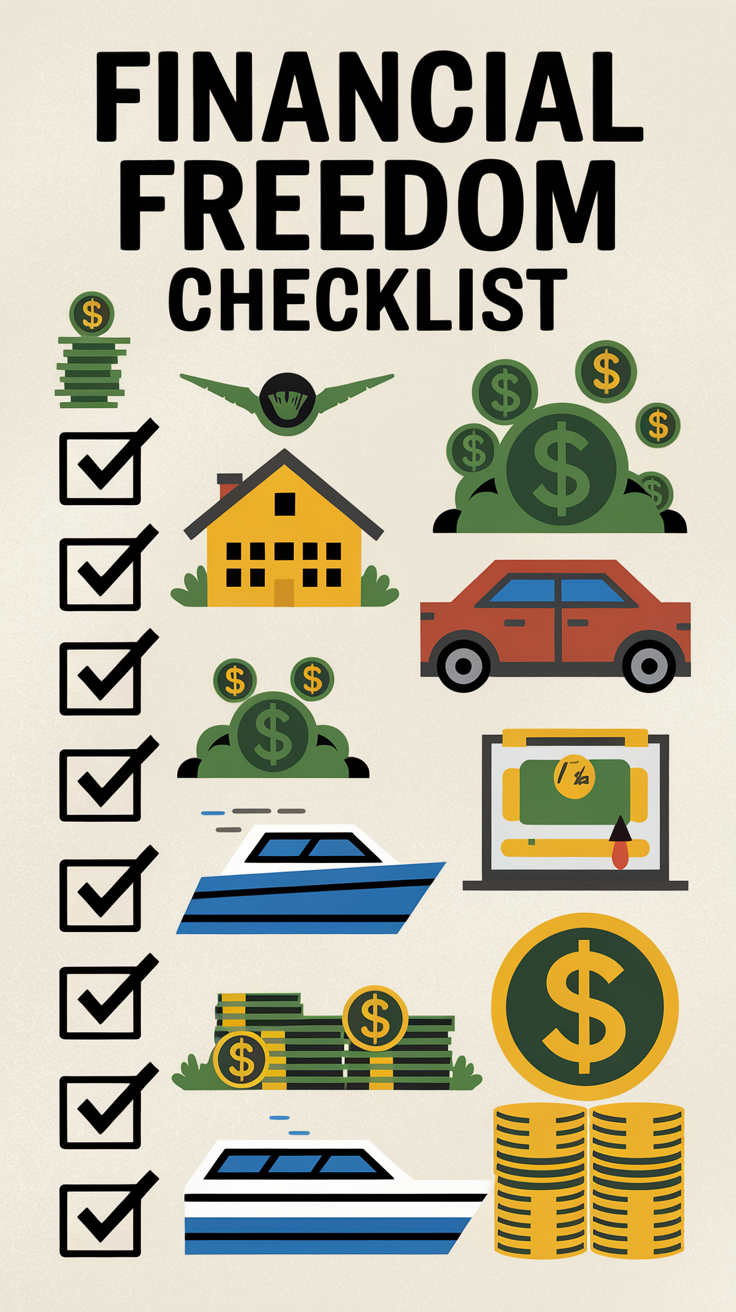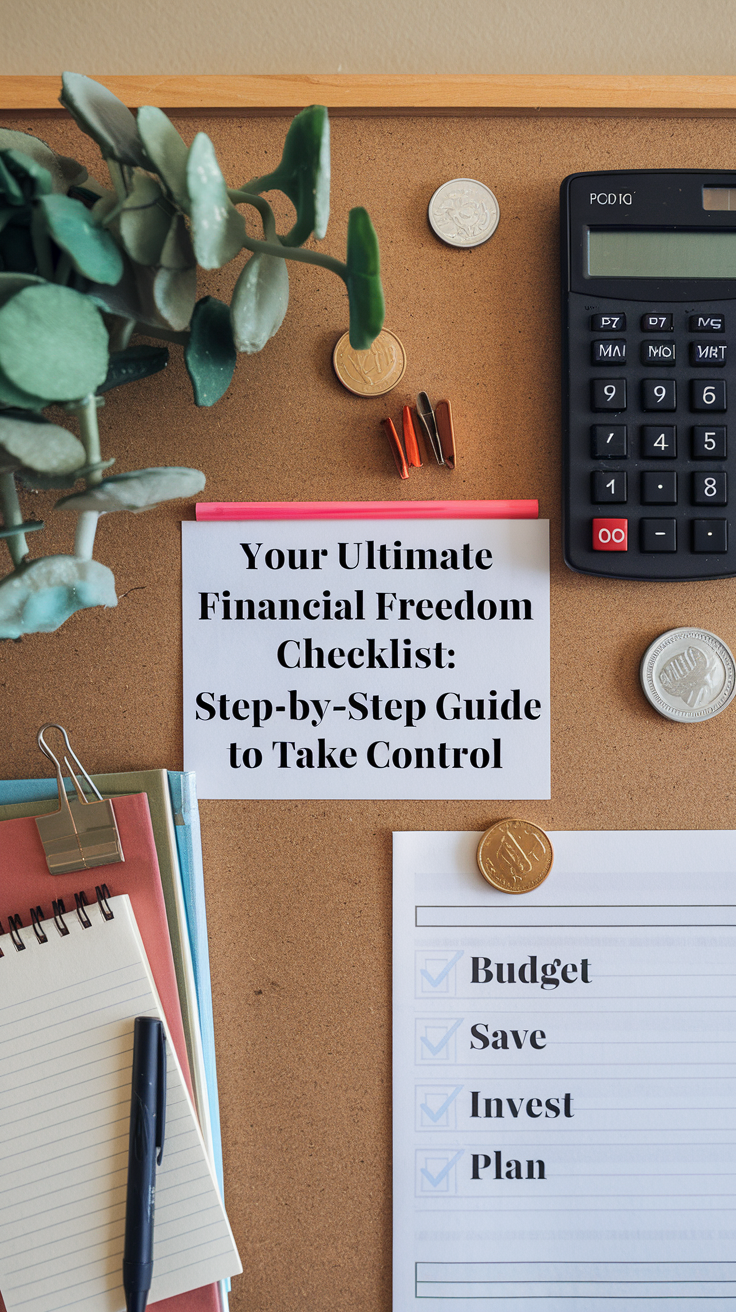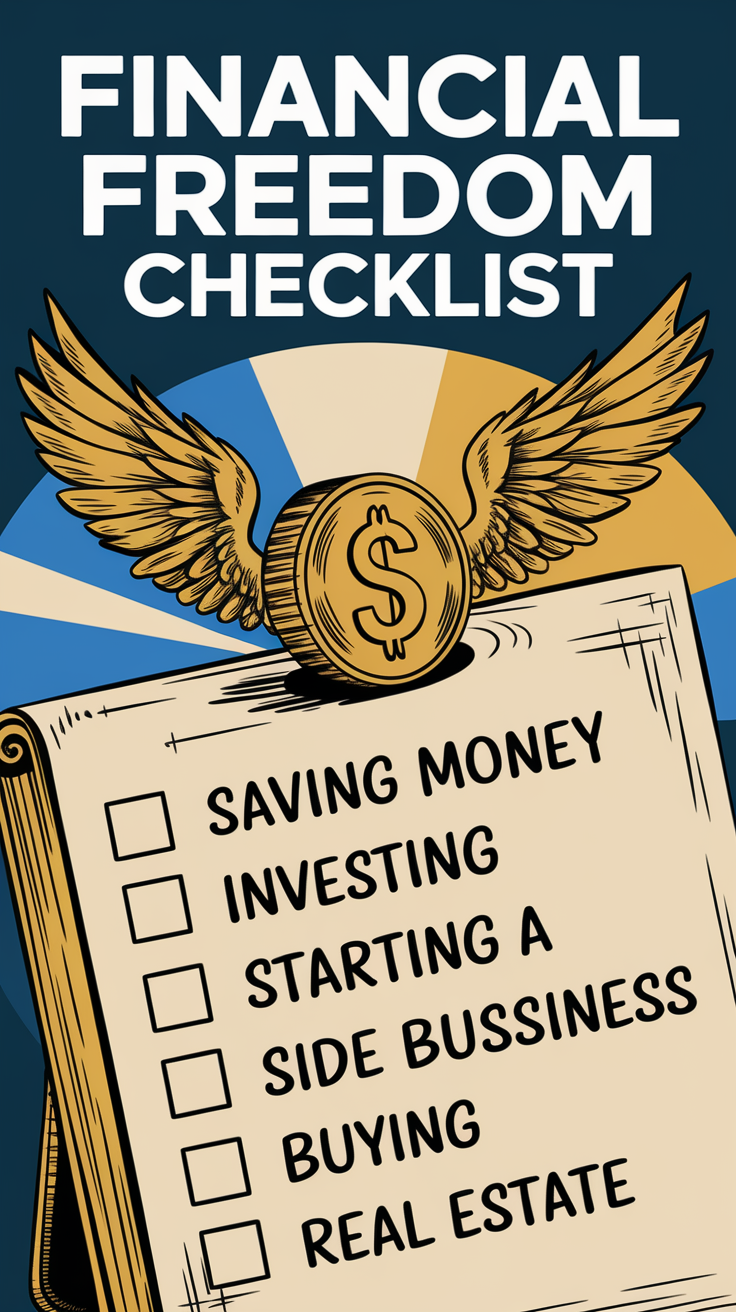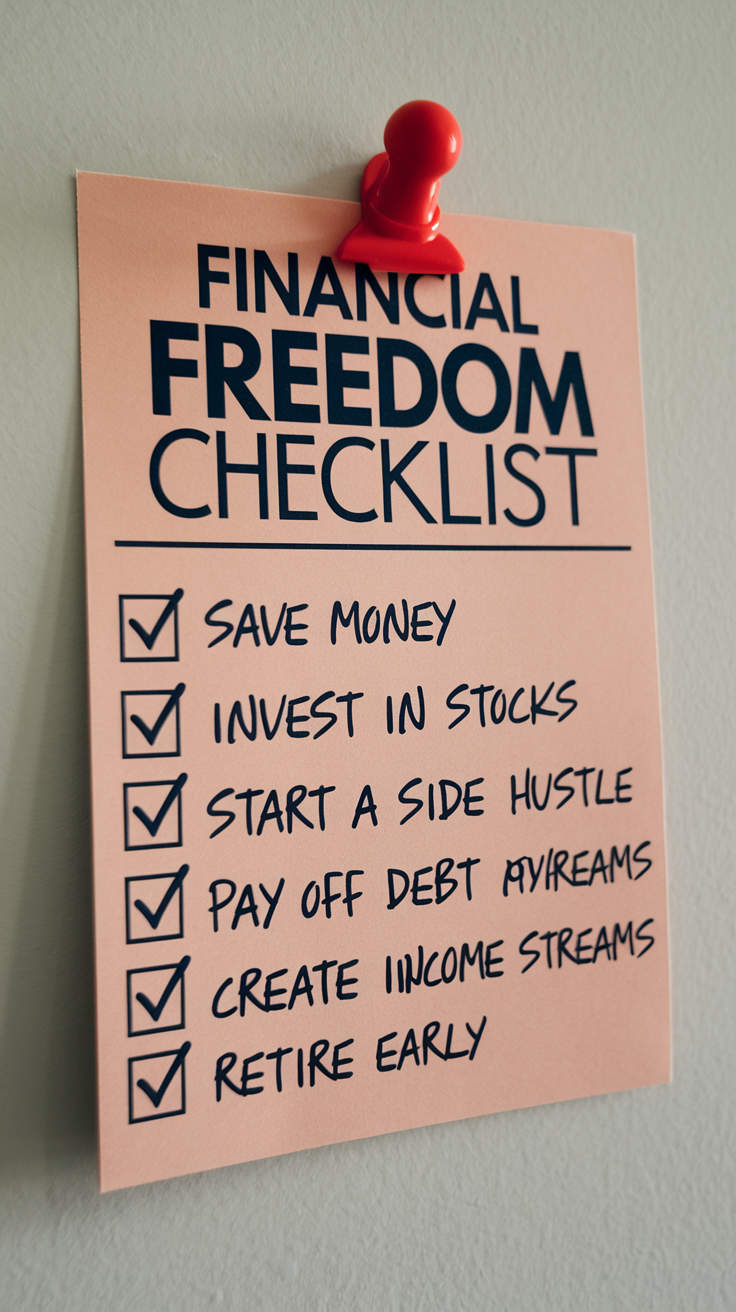Financial Freedom Checklist
Achieving financial freedom is a goal many aspire to, but the journey often feels overwhelming. Whether you’re just starting out or looking to optimize your financial plan, having a clear checklist makes all the difference. Let me guide you step-by-step through a comprehensive approach that combines practical strategies and mindset shifts for lasting success.
Understand Your Current Financial Situation
Before you can plan for financial freedom, you need a clear picture of your finances. Assessing where you stand is the first step.
Steps to Assess Your Finances
- Calculate Net Worth: List all assets (cash, investments, property) and subtract liabilities (loans, credit card debt).
- Track Expenses: Use a tracking tool to categorize spending and identify areas to cut back.
- Evaluate Income Streams: Look at primary and secondary sources of income and their reliability.

Budgeting Tools Comparison
| Tool | Features | Best For |
|---|---|---|
| Mint | Expense tracking, goal setting | Beginners |
| YNAB | Focus on saving for priorities | Intermediate planners |
| Personal Capital | Investment-focused budgeting | Advanced users |
On my journey, I realized that tracking every expense—even coffee runs—gave me unexpected insights into my spending habits.
Cultivate a Financial Freedom Mindset
Your mindset plays a huge role in achieving financial freedom. Discipline, patience, and a long-term outlook are key.
Key Mindset Strategies
- Avoid Lifestyle Inflation: Resist the urge to increase spending as your income grows.
- Embrace Delayed Gratification: Prioritize long-term benefits over immediate pleasures.
- Visualize Goals: Picture what financial freedom looks like for you.
Personally, I found that journaling my progress helped me stay focused and motivated.
Set Clear Financial Goals
Define goals that are specific, measurable, achievable, relevant, and time-bound (SMART).
Types of Financial Goals
- Short-Term Goals: Build an emergency fund within six months.
- Mid-Term Goals: Save for a down payment on a house in five years.
- Long-Term Goals: Retire early by creating passive income streams.
Create and Stick to a Budget
Budgeting is the backbone of any financial freedom plan. It ensures that your money works for you.

Budgeting Methods Comparison
| Method | Description | Best For |
| 50/30/20 Rule | Allocate 50% to needs, 30% to wants, and 20% to savings. | Simple, flexible |
| Zero-Based Budgeting | Every dollar is assigned a job. | Detailed planners |
| Envelope Method | Use physical or digital envelopes for categories. | Visual budgeters |
I’ve found the 50/30/20 rule to be a great starting point for many people who feel overwhelmed by detailed tracking.
Build an Emergency Fund
An emergency fund protects you from unexpected financial shocks.
Tips for Building an Emergency Fund
- Savings Target: Save at least 3-6 months of living expenses.
- Use High-Yield Accounts: Opt for savings accounts with better interest rates.
Suggested Savings Accounts
| Bank | Interest Rate | Accessibility |
| Ally Bank | 3.75% | Online, easy transfers |
| Marcus by Goldman Sachs | 3.80% | No fees, user-friendly |
| Discover Bank | 3.70% | Widely accessible |
When I started my emergency fund, I automated transfers to make saving effortless.
Eliminate Debt Strategically
Debt can be the biggest obstacle to financial freedom. Tackling it systematically is essential.
Debt Elimination Methods
- Avalanche Method: Pay off high-interest debts first.
- Snowball Method: Start with the smallest debts for quick wins.
- Debt Consolidation: Combine debts into one with a lower interest rate.
Save and Invest Wisely
Your money should work for you. Building wealth requires strategic saving and investing.
Key Investment Strategies
- Diversify: Spread investments across stocks, bonds, and alternative assets.
- Automate Investments: Set up recurring contributions to reduce emotional decision-making.
- Focus on Index Funds: They’re low-cost and diversified.

Plan for Retirement
Retirement planning ensures long-term financial security.
Steps for Retirement Planning
- Contribute to Retirement Accounts: Max out contributions to 401(k)s or IRAs.
- Estimate Retirement Needs: Use calculators to determine how much you’ll need.
- Invest for Growth: Choose funds that outpace inflation.
On my journey, I’ve learned the earlier you start, the greater the rewards thanks to compound interest.
Build Passive Income Streams
Creating passive income accelerates your journey to financial freedom.
Examples of Passive Income
- Rental properties.
- Dividend stocks.
- Monetizing hobbies through online courses or blogs.
Protect Your Financial Future
Securing your financial freedom also means protecting it.
Asset Protection Strategies
- Insurance: Health, life, disability, and property insurance.
- Estate Planning: Create wills or trusts to safeguard your wealth.
Continuously Educate Yourself
Financial literacy is a lifelong pursuit. Stay informed to make sound decisions.
Recommended Actions
- Read: Books like Rich Dad Poor Dad or The Millionaire Next Door.
- Take Courses: Platforms like Coursera offer personal finance classes.
- Follow Trends: Stay updated on financial news.
FAQs About Financial Freedom
1. How long does it take to achieve financial freedom?
It depends on your starting point, income, and discipline. With a solid plan, many achieve it in 10-20 years.
2. Should I save or invest first?
Build an emergency fund first, then focus on investing.
3. How do I avoid financial scams?
Research thoroughly, avoid get-rich-quick schemes, and stick to reputable platforms.
4. Can I achieve financial freedom on a low income?
Yes, by cutting unnecessary expenses, focusing on savings, and increasing income through side hustles or skill development.
5. What is the best way to stay motivated?
Set clear goals, track progress, and celebrate small milestones along the way.






